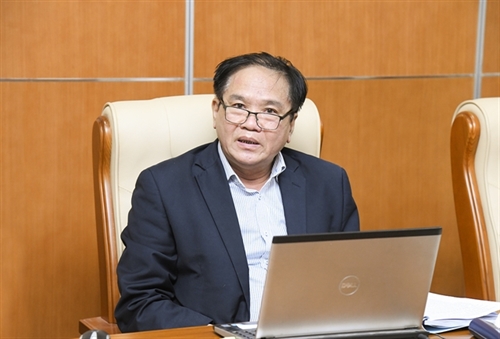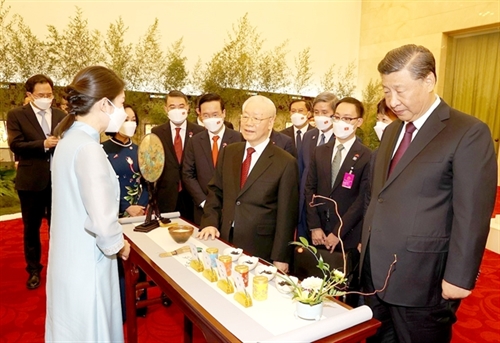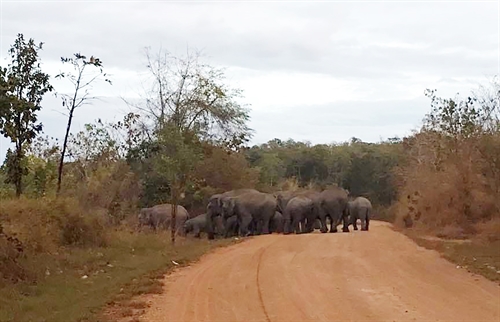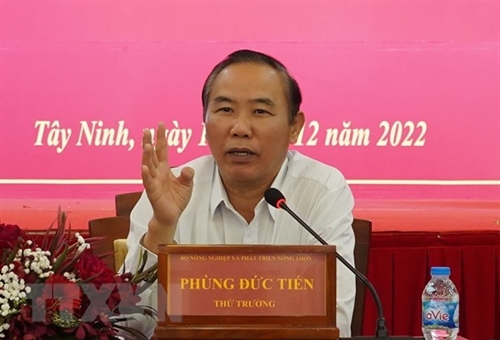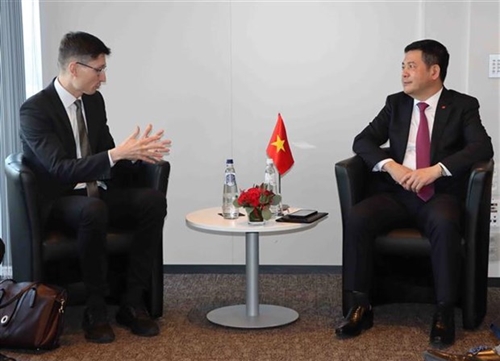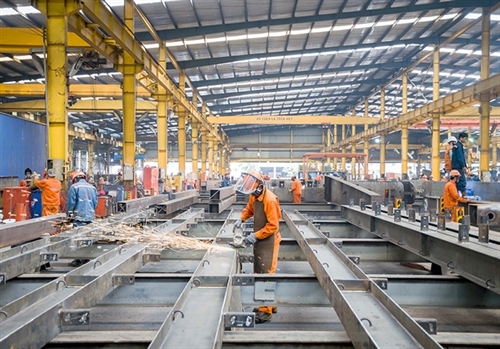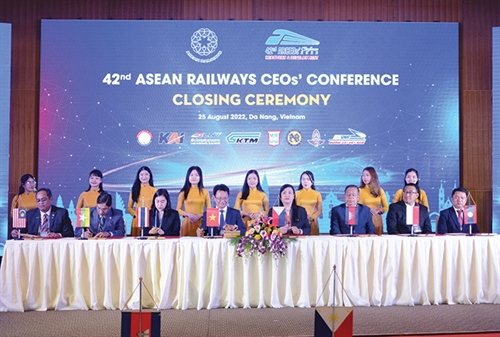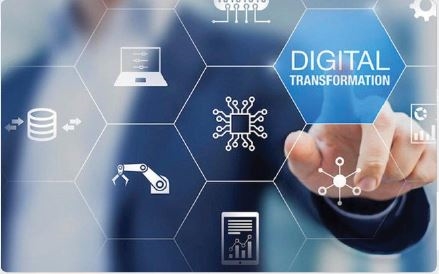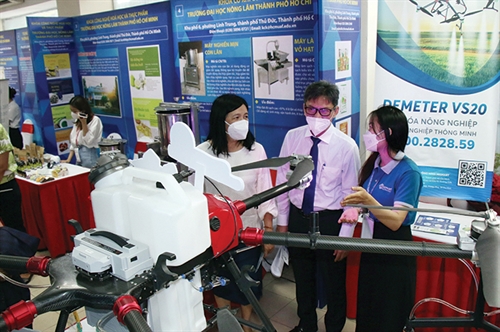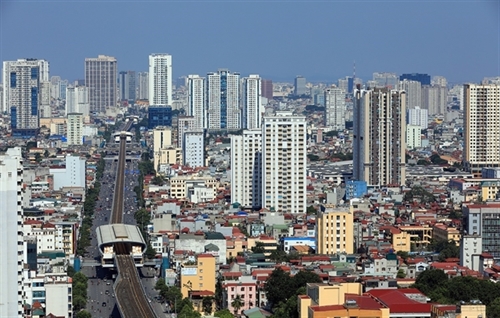Assoc. Prof. Dr. Doan Hong Nhung & Tran Van Dung[1]
The 2013 Constitution of Vietnam has clearly stated in its Article 43: “Everyone has the right to live in a clean environment and has the obligation to protect the environment”. Against the backdrop of the Industrial Revolution 4.0, this principle must be strictly adhered to so as to ensure the human rights related to the living environment, especially with the use of green energy, clean energy and renewable energy for sustainable national development.
Clean energy can be construed as energy sources that cause little or no effect on the environment and the green energy as those created from natural sources such as sunlight, wind, rain, and geothermal power. Meanwhile, renewable energy comprises wind power, solar energy, tidal energy, biomass energy, and bioenergy. Article 43.1 of the 2014 Law on Environmental Protection stipulates: “Renewable energy is the energy exploited from water, wind, sunlight, geothermal power, sea tide, biological fuels and other renewable energy resources.” However, such definition was no longer seen in the 2020 Law on Environmental Protection.
It can be said that the use of these clean energy sources will not affect humans and the environment but greatly contribute to the process of ensuring the human rights. However, in the course of using these energy sources, enterprises have met with certain difficulties and challenges regarding infrastructure, legal corridors, investment and support policies. Particularly, the Vietnam’s legal system should be further improved so that the living environment-related human rights will be absolutely ensured for a safe and clean life of every person.
Being aware of importance of human rights protection upon the use of green energy, clean energy and renewable energy in the era of Industrial Revolution 4.0, the Communist Party of Vietnam and Vietnamese State have adopted various policies to boost the development of these energy sources. This constitutes an important basis for building a legal corridor to ensure that the exercise of living environment-related human rights in Vietnam. However, for the time being, there exist no specific definitions of green energy, clean energy and renewable energy in Vietnamese legal documents. It is not to mention several shortcomings and inadequacies that have been revealed during the implementation process.
Role and significance of green energy, clean energy and renewable energy in assurance of human rights
It can be affirmed that the living environment constitutes a basic element governing the survival and development of mankind. Therefore, if quality of the living environment is guaranteed, the human rights are also ensured. Hence, the use of these energy sources plays an important role in ensuring the human rights.
Firstly, the use of green energy, clean energy and renewable energy helps clean and develop the living environment and enable people to enjoy the best living conditions with high quality. Meanwhile, the adverse impacts on environment are minimized, thus reducing the danger of climate change.
Secondly, the use of green energy, clean energy and renewable energy aims toward a hygienic and safe environment, which ensures people’s well-being as well as surrounding landscapes. This creates prerequisites for fast and sustainable socio-economic development and environmental protection. The ultimate goal is to ensure that the people have the right to live in a clean and healthy environment, which becomes the driving force for quick application of scientific and technical advances to the process of exploiting and using the green energy, clean energy and renewable energy in Vietnam.
Thirdly, the use of these new energies helps create a better living environment, making people feel safe and secure and creating favorable conditions for their development When proper investment is made in development of these energies, considerable positive impacts on socio-economic development will be created. Moreover, in the context that fossil energy sources such as coal and petroleum are getting exhausted, the use of green energy, clean energy and renewable energy will create a new step of development in replacement of old energy sources.
Fourthly, the use of green, clean and renewable energies greatly contribute to ensuring energy security against fast reduction of old energy sources such as petroleum, coal, minerals.
So, there exists the dialectical and close relation between the assurance of living environment-related human rights and the use of green, clean and renewable energies. The use of these energy sources has contributed to ensuring the people’s constitutional right to live in a clean and healthy environment and, at the same time, turn human rights into a motive force for boosting the use of new energies.
Vietnam’s law on guarantee of living environment-related human rights upon the use of green energy, clean energy and renewable energy
Over the past time, the legal corridor governing the use of green energy, clean energy and renewable energy to ensure the human rights has been formulated and constantly improved. The guarantee of environment-related human rights has been codified in the 2013 Constitution, the 2020 Law on Environmental Protection, and the 2016 Law on Access to Information. The protection of living environment- related human rights has been fully prescribed, thus creating a legal corridor for assurance of human rights in Vietnam. In order to facilitate the use of green energy, clean energy and renewable energy in the country, on November 25, 2015, the Prime Minister issued Decision 2068/QD-TTg approving the Strategy for Development of Renewable Energy through 2030, with a vision toward 2050, attaching importance to the use of verified technologies in the field of renewable energy, such as hydro-electricity, wind energy, solar energy, biomass energy, and bio-gases to develop renewable sources. Besides, the VII Electricity Master Plan, promulgated under the Prime Minister’s Decision 1208/QD-TTg of July 21, 2021, specifies the mechanism on prioritizing the development of green energy, clean energy and renewable energy. The Political Bureau’s Resolution 55-NQ/TW of February 11, 2020, on strategic orientations for national energy development through 2030, with a vision toward 2045 pointed out the specific objectives: (i) the ratio of renewable energies to the total primary energy supply reach 15-20 percent by 2030 and 25-30 percent by 2045 and (ii) the total ultimate energy consumption will be 105-115 million TOE in 2030 and 160-190 million TOE in 2045.
Reality shows that the legal corridor for the use of new energies in the era of Industrial Revolution 4.0 has been enforced with given successes from the perspective of human rights protection, particularly in the course of promoting investment in green, clean and renewable energies. Many incentive policies have been applied to encourage investment, such as those regarding credits, import duty and corporate income tax. This has encouraged enterprises to invest in the use of new energies.
However, in the course of promoting investment in the sources of new energies, the legal system has revealed certain limitations directly affecting the human rights.
Firstly, master plans, plans and policies concerning development of green energy, clean energy and renewable energy remain unclear and too vague. The master plan on development of electricity sources and that on infrastructure development have not been synchronous, thus leading to prolonged implementation and higher costs.
Secondly, regulations on investment promotion remain incomprehensive and not specified in related laws such as the Electricity Law, Planning Law, Land Law, and Construction Law. Meanwhile, sub-law documents have not been promptly promulgated.
Thirdly, the order and procedures for grant of electrical operation permits remain complicated, causing difficulties to foreign investors. It is not to mention unfair competition between enterprises using green, clean and renewable energies and therefore, have to bear higher production costs, and those using traditional energy sources.
Lastly, many people have not abandoned their bad habit of using traditional energy such as char coal for furnace burning, thus polluting the environment and causing harms to human health. Moreover, the human resources for management and operation of technical infrastructure remain weak and inadequate, thus failing to beat the implementation progress of many registered projects.
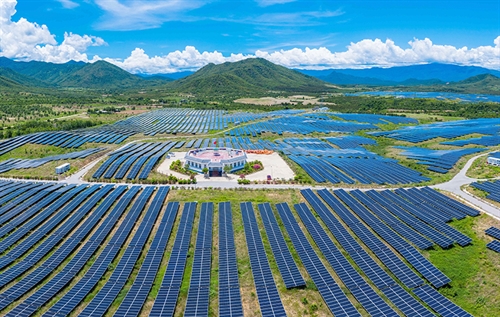 |
| A solar farm in Ninh Thuan province__Photo: Cong Thu/VNA |
Recommendations
First of all, it is necessary to quickly and comprehensively organize the implementation of the National Strategy for Green Growth in the 2021-30 period, with a vision toward 2050, promulgated under the Prime Minister’s Decision 1658/QD-TTg of October 1, 2021, on restructuring of the economy in association with renewal of the economic growth model with environmental sustainability and social justice.
The second solution is to ensure the synchronism and consistency of legal documents on promotion of investment in new energy sources. Legal provisions should specify the concepts, modes and conditions, as well as procedures for implementation of projects. Recently, green energy, clean energy and renewable energy have gradually replaced fossil energies. For example, in Hanoi, diesel and petrol buses have been step by step replaced with electric ones while an overhead metro rail line has been put into operation. Hence, it is necessary to formulate a law on green energy, clean energy and renewable energy in Vietnam.
The next thing to do is simplifying procedures for licensing investment, development and construction of green, clean and renewable energy sources in the direction of applying the single-window mechanism in state management of new energy sources. In addition, competent agencies should study, formulate and promulgate a circular guiding the implementation of foreign investment projects on clean and renewable energy in Vietnam.
In addition, incentive policies for people who use green energy, clean energy and renewable should be implemented in a synchronous, complete and comprehensive manner because this is an important motive to encourage people to use energy sources good for the environment and humans instead of raw and fossil fuel energy. Legal institutions and laws should be improved to promote investment in modern technologies so as to efficiently exploit and use green energy, clean energy and renewable energy, together with improving the effectiveness of existing incentive policies applicable to investment projects on green, clean and renewable energies. Moreover, it is necessary to intensify public communication to mobilize enterprises to opt for use of new energy sources in production activities.
Development of human resources constitutes another solution. The State should encourage researches in the implementation of green energy, clean energy and renewable energy projects so as to a contingent of experts specialized in these sources of energy and, concurrently boost the development of human resources for the wind power, solar power and green energy markets and encourage enterprises to send their employees abroad for training, conduct technology transfer, and learn from international experiences in management, exploitation and use of green energy, clean energy and renewable energy.
Last but not least, public communication about environment-related human rights protection should be intensified so that people are aware of their rights and obligations toward their living environment, changing their mindset and quickly shifting to use green, clean and renewable energies in their daily life as well as production and business activities.-
[1] The two authors are lecturers at the University of Law, Vietnam National University - Hanoi
